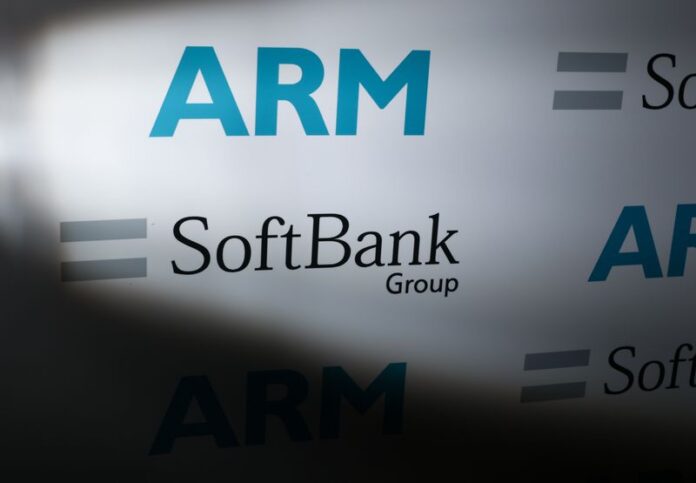SoftBank Arm aims to raise in US IPO
According to people familiar with the matter, Arm Ltd, the British chip designer owned by Japan’s SoftBank Group Corp, is likely to aim to raise at least $8 billion from what is expected to be a blockbuster US stock market debut this year.
Arm is expected to submit confidential paperwork for its initial public offering in late April, according to sources who spoke on the condition of anonymity because the discussions are private. The listing is expected to take place later this year, with the exact timing determined by market conditions, according to the sources.
SoftBank has chosen four investment banks to lead the most high-profile stock market flotation in recent years. According to the sources, Goldman Sachs Group Inc, JPMorgan Chase & Co, Barclays, and Mizuho Financial Group are expected to be the deal’s lead underwriters, with no bank having been chosen for the coveted “lead left” position.
The Australian Financial Review published an article about the top banks on Sunday.
SoftBank
Requests for comment from Barclays, JPMorgan, and SoftBank were not immediately returned. Goldman Sachs, Arm, and Mizuho all declined to comment.
A successful Arm IPO this year would boost the IPO market, which has been largely frozen since Russia’s invasion of Ukraine in February 2022 triggered market volatility and a massive sell-off in tech stocks.
The IPO market briefly resurfaced last month, with a number of companies, including solar tech firm Nextracker Inc and Chinese sensor maker Hesai Group, listing their shares on US stock exchanges, but investors are still wary of betting on new stocks.
IPO advisors do not anticipate a full-fledged recovery in capital markets until the second half of this year. Last week, Arm announced that it would pursue a US-only listing this year, deflating the British government’s hopes that the tech behemoth would return to the London stock exchange.
SoftBank has been continuing to pursue a listing for Arm since its deal to sell the chip designer to Nvidia Corp for $40 billion fell through last year due to antitrust concerns raised by US and European regulators.

